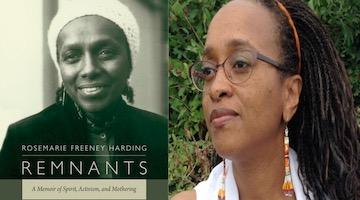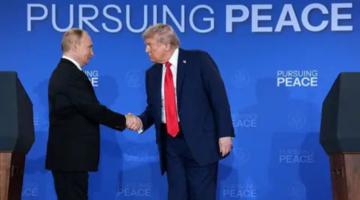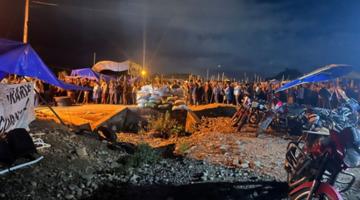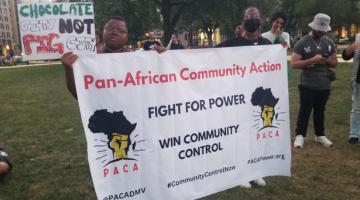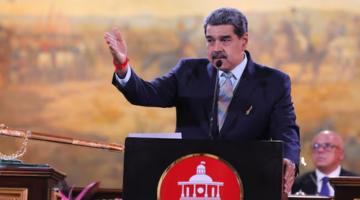“Ultimately, the surest way to reduce the risk of nuclear war is to eliminate nuclear weapons.”
In this series, we ask acclaimed authors to answer five questions about their book. This week’s featured author is Shane J. Maddock.Maddock is Professor of History at Stonehill College. His book is Nuclear Apartheid: The Quest for American Atomic Supremacy from World War II to the Present.
Roberto Sirvent: How can your book help BAR readers understand the current political and social climate?
Shane J. Maddock: Nuclear Apartheid explores U.S. efforts to prevent other nations from acquiring nuclear weapons from 1945 to 2010. The centerpiece of that effort is the Nuclear Non-Proliferation Treaty of 1968, which allows only the United States, the Soviet Union (now Russia), France, Great Britain, and the People’s Republic of China to possess nuclear arsenals. My study provides historical context for contemporary efforts to block both Iranian and North Korean efforts to develop and deploy their own nuclear arsenals and documents the long history of U.S. assumptions that certain countries, because of their racial, ethnic, or religious compositions, produce leaders who are not capable of wielding nuclear weapons responsibly. It also explains why the United States continues to be reluctant to abandon its own nuclear arsenal despite the end of the Cold War.
The federal government’s continued insistence on the country’s ability to defeat any combination of world powers in a war absorbs massive financial resources that then cannot be used to confront other domestic and international issues, such as climate change, crumbling domestic infrastructure, and improving the public school system. Fantasies about safe and affordable nuclear energy have also complicated efforts to end the nuclear arms race by encouraging other nations around the world to start their own research programs and build nuclear power plants. Nuclear power plants actually produce more material that can be used for nuclear weapons, and therefore increase both the possibility of other nations acquiring nuclear arsenals and the danger of radioactive substances coming into the hands of terrorist organizations.
What do you hope activists and community organizers will take away from reading your book?
Ultimately, I hope they take away the notion that many of the issues important to the country’s future are interconnected. Some people are arguing that an important step toward controlling climate change is a switch to alternative energy sources, including nuclear power. Nuclear Apartheid argues that safe nuclear power is a chimera. The plants are still environmental hazards as the Japanese tsunami and earthquake in 2001 proved. Plants create nuclear waste products that are hazardous for centuries and proposals for recycling nuclear waste creates a more complicated fuel cycle that increases the chances that weapons-grade material will circulate surreptitiously on the black market. Moreover, one study estimates that from 1940 (the birth of the Manhattan Project) to 1996, the United States spent almost $6 trillion on nuclear weapons programs. In the last two decades, the government has added at least $400 billion more to that total.
“’Nuclear Apartheid’ argues that safe nuclear power is a chimera.”
As early as 1953, President Dwight Eisenhower argued in his “Chance for Peace” speech that “Every gun that is made, every warship launched, every rocket fired signifies, in the final sense, a theft from those who hunger and are not fed, those who are cold and are not clothed.. .. Thecost of one modern heavy bomber is this: a modern brick school in more than 30 cities. It is two electric power plants, each serving a town of 60,000 population. It is two fine, fully equipped hospitals. It is some fifty miles of concrete pavement. We pay for a single fighter with a half-million bushels of wheat. We pay for a single destroyer with new homes that could have housed more than 8,000 people.” The nation ignored his warning at that time and the social costs of continued militarism have only grown.
We know readers will learn a lot from your book, but what do you hope readers will un-learn? In other words, is there a particular ideology you’re hoping to dismantle?
My book seeks to dismantle two pernicious ideologies that have distorted social and political debates in the United States. The first is American exceptionalism. The United States has operated and has continued to operate like a traditional great power and its leaders have ranged from thoughtful to dangerous and ignorant. If American policymakers are prudent in wanting to reduce the risk that another power will launch nuclear weapons by accident or because a dangerously, unstable person may acquire control over that country’s arsenal, then other countries are equally prudent to advocate that the United States also reduce the risk that its arsenal will be used carelessly or fall under the control of a mercurial and delusional leader. Ultimately, the surest way to reduce the risk of nuclear war is to eliminate nuclear weapons,and that means all nations need to pledge their support for nuclear abolition.
The doctrine of deterrence constitutes the other ideological construct that I seek to dismantle. To many, deterrence theory is only relevant to nuclear or military issues. Yet, deterrence thinking infects policy debates on a number of issues because at its core is the belief that the only check against violence is the threat of retaliation. The end of the Cold War brought the proclamation that “deterrence worked,” despite the fact that several scholars including political scientist John Vasquez, have made powerful arguments that such claims are specious. The myth proved too powerful to dispel and it continues to provide a justification for maintaining a U.S. nuclear stockpile of thousands of warheads. Domestically, that same thinking provides a justification for an expansive definition of Second Amendment rights. Under the pall of deterrence thinking, some claim that “the only thing that can stop a bad man with a gun is a good man with a gun.”
Who are the intellectual heroes that inspire your work?
The intellectual heroes who have shaped my overarching theory of history are W.E.B DuBois, Antonio Gramsci, and Joan Wallach Scott. The thinkers who had an especially profound influence on my argument in Nuclear Apartheid were Michael H. Hunt, Bruce Cummings, and Carol Cohn. DuBois is simply, in my opinion, the greatest American intellectual of the twentieth century and I have been influenced by him in immeasurable ways. In Nuclear Apartheid,two of his insights from The Souls of Black Folks had an especially profound effect on my thinking – that the history of the twentieth century would be the history of the color line and that identity is conditional (In Souls of Black Folk, he noted the fundamental “two-ness” of his own identity). A scholar studying the country in which one lives has to embrace that “two-ness” and strive to view that country from a distance. His insight about the color line anticipated the collapse of international empires and the weakening of “white supremacy” both domestically and internationally.
Nuclear Apartheid exposes how “white supremacy” remained alive in U.S. foreign policy thinking and undergirded some American efforts to prevent the spread of nuclear weapons.Antonio Gramsci’s theory of “cultural hegemony” raised my awareness of how unquestioned assumptions often shape and limit the choices leaders make and while also enabling them to persuade the public that those choices were the only “rational” ones. Joan Wallach Scott opened scholars’ eyes to how gender pervades culture, language, and everyday life. Once one acknowledges its ubiquitous nature, then one can see its influence in numerous political and social contexts. Both Michael Hunt and Bruce Cummings shaped my thought on the ideological conflicts within the policymaking elite, and Carol Cohn illuminated how gender and gendered language defined nuclear strategic thinking.
In what way does your book help us imagine new worlds?
By exposing the emptiness of American exceptionalism as well as its roots in white supremacist thinking, Nuclear Apartheid seeks to inspire visions of a world in which people jettison nationalist blinders and embrace the global commons. Nuclear proliferation is just one issue that impacts all global denizens, along with climate change, income inequality, pollution, human trafficking, the drug trade, and many others. A world devoid of “zero-sum game” and “us versus them” thinking could produce long term and persistent efforts to confront these problems, and more importantly prompt a dialogue in which people recognize that many of these problems are interconnected. Global income inequality is linked to several of these problems and climate change has the potential to make many of them worse. Even if people are able to put aside their differences and focus on their shared humanity, there is no guarantee that they will be able to formulate successful solutions to these problems. But if they don’t work together, any hopes of resolving these issues is empty. As French President Emmanuel Macron recently told a joint session of congress, there is no Planet B. Everyone suffers if the globe continues to grow warmer, all of humanity will have to deal with the consequences of food and water shortages, and no one will escape the consequences if the globe devolves into nuclear war. Unilateralist solutions haven’t and won’t produce a better world. It’s long past time we embrace multilateral efforts to confront these problems.
Roberto Sirventis Professor of Political and Social Ethics at Hope International University in Fullerton, CA. He also serves as the Outreach and Mentoring Coordinator for the Political Theology Network. He’s currently writing a book with fellow BAR contributor Danny Haiphong called American Exceptionalism and American Innocence: The Fake News of U.S. Empire.










